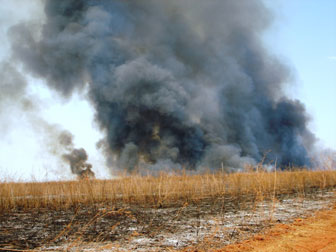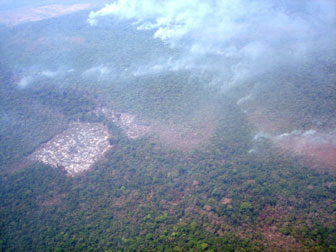Brazil seeks $1B/yr in donations to save the Amazon
Brazil seeks $1B/yr in donations to save the Amazon
mongabay.com
February 23, 2008
|
|
Brazil will establish a donation-based fund to help finance conservation in the Amazon, according to Bloomberg. The announcement comes after deforestation rates spiked during the last five months of 2007.
The Brazilian government will seek up to $1 billion per year in donations from the governments of industrialized countries and corporate sources. Contributors will not be eligible for carbon credits that may be generated by “avoiding” deforestation under a mechanism — known as REDD — ratified at climate talks in Bali last December.
Daniel Nepstad, a researcher at the Woods Hole Research Institute, estimates the cost of reducing deforestation in the Brazilian Amazon to nearly zero within a decade would be $100 million to $600 million per year under a program involving carbon credits for forest conservation (REDD). Tasso Azevedo, director of the Brazil’s forestry services, estimates the country needs about $2 billion annually to stop illegal deforestation of the Amazon. It is unclear whether Azevedo’s estimate accounts for income generated under a REDD framework.

Photos by John Cain Carter. |
The Brazilian Congress has allocated about $292 million over four years to address deforestation. Management of the newly proposed fund will be handled by Brazil’s state-development bank.
The trees of the Amazon rainforest store 90-140 billion metric tons of carbon, according to calculations by scientists, but deforestation accounts for about 70 percent of Brazil’s greenhouse gas emissions. These emissions primarily result from forest conversion for agricultural expansion — notably beef and soy production — in the Amazon.
In recent years, deforestation has increasingly moved in step with soy and cattle prices: as prices surged to near record levels in the second half of 2007, forest clearing about doubled over the previous year.
